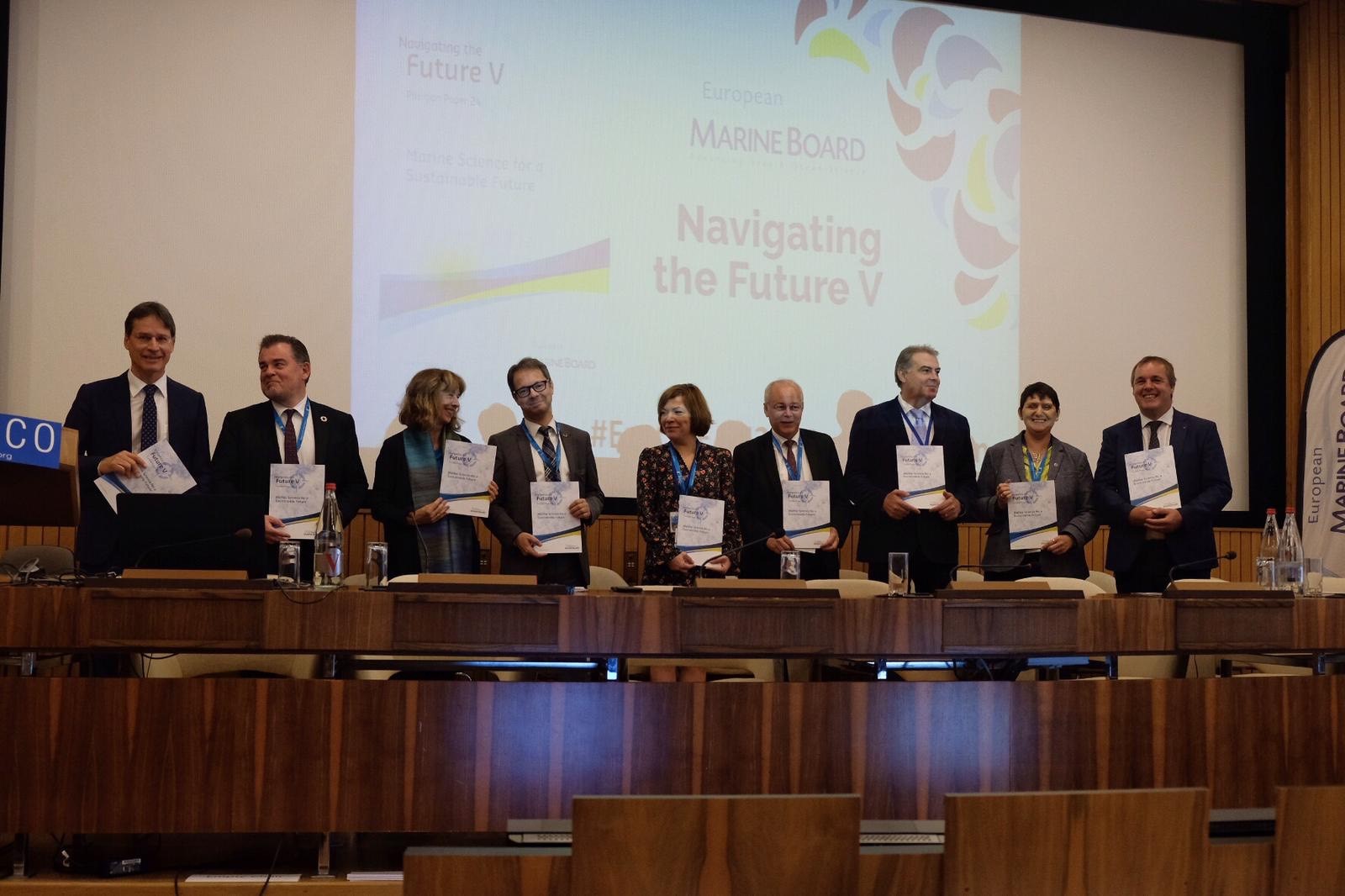
Navigating the Future V (NFV) was launched today during EurOCEAN2019, the European Marine Board high-level science policy conference in Paris. NFV provides governments with robust, independent scientific advice on future seas and ocean research from now until 2030 and beyond.
The future we want requires a healthy ocean and the sustainable use of marine resources. However, the ocean is under threat from multiple interacting stressors. Moreover, we are still developing the scientific knowledge base and technology to fully explore, understand, observe and predict the ocean and the effect of human activities. NFV proposes the science we need for the forthcoming UN Decade of Ocean Science for Sustainable Development (2021-2030), the next European Framework Programme, Horizon Europe, and its “Mission on Healthy Oceans, Seas, Coastal and Inland Waters.”
Specifically, the report recommends a solutions-oriented, transdisciplinary marine research agenda, co-designed with all stakeholders and with the governance of sustainability at its core. It should address the following key knowledge gaps and actions:
• The four-dimensional ocean i.e. a three-dimensional volume that changes over space and time. An interdisciplinary research program on ocean connectivity is needed including more knowledge of the functional links that connect the components of the marine system, i.e. physics, chemistry, biology, geology, ecology and humans. The four-dimensional structure and function of marine ecosystems should be better integrated into management and conservation practices;
• Multiple stressors (e.g. climate change, pollution, overfishing) and their impact on the functioning of marine ecosystems, including their interactions, evolution and adaptation over time. Quantitative models that include uncertainties and that help develop early-warning indicators for multiple stressors and approaching tipping points should be used in combination with observations and experiments;
• Climate-related extreme events and geohazards including marine heat waves, storm surges, meteotsunamis and submarine earthquakes, landslides, volcanic eruptions and their associated tsunamis. We need to better understand their characteristics, probability, impacts and potential changes under climate change. An early-warning system for these events that will include enhanced observations, modelling and forecasting is a priority;
• Ocean technologies, modelling, data and artificial intelligence needed to understand, predict and manage human impacts on the ocean. This includes the Ocean Internet of Things where next-generation ocean observations are transferred in real-time to communication networks combined with enhanced local data processing i.e. machine learning and artificial intelligence. A virtual reality ocean platform would enable all information to be uploaded and visible to the public in real-time. A key priority is the development of a business model ensuring the long-term economic sustainability of ocean observations that involves co-design with all stakeholders; and
• Sustainability science for the ocean. A new generation of sustainability scientists needs to be trained to focus on a holistic vision of the marine ecosystem. We also need to establish a sustainability forum within Europe bringing together all actors including industry and civil society. Marine citizen science is a priority for enhancing public understanding of the ocean as a common good whose health is crucial for humanity.
The report has been a collaborative effort starting in November 2017 with a planning meeting of 19 leading European marine scientists to decide the high-level content. Larger collaborative working groups with representatives from 13 European countries then worked to identify knowledge gaps and draft the recommendations of the report.
Download the full report here, the one-page factsheet for policy makers here and infographics here.